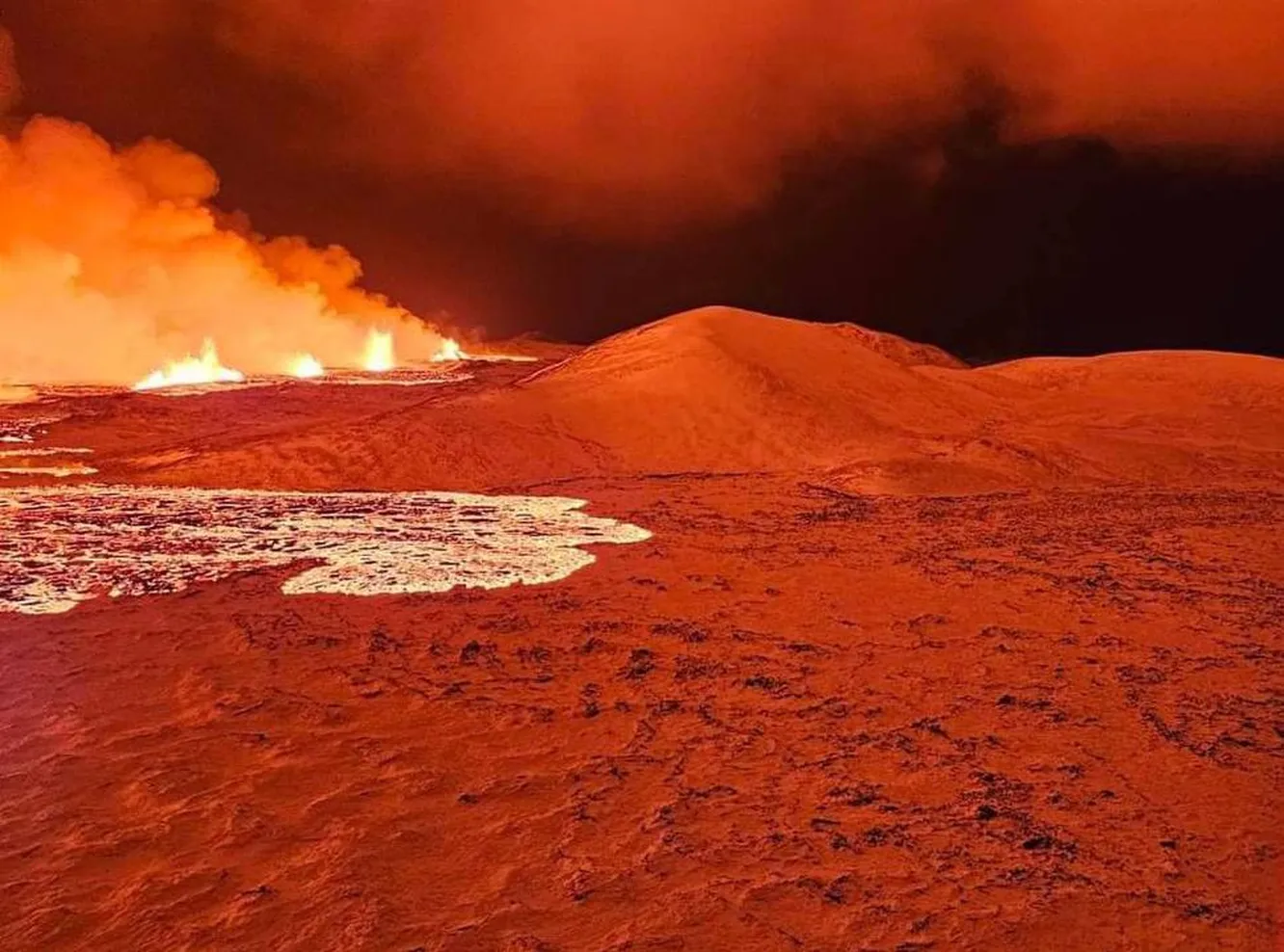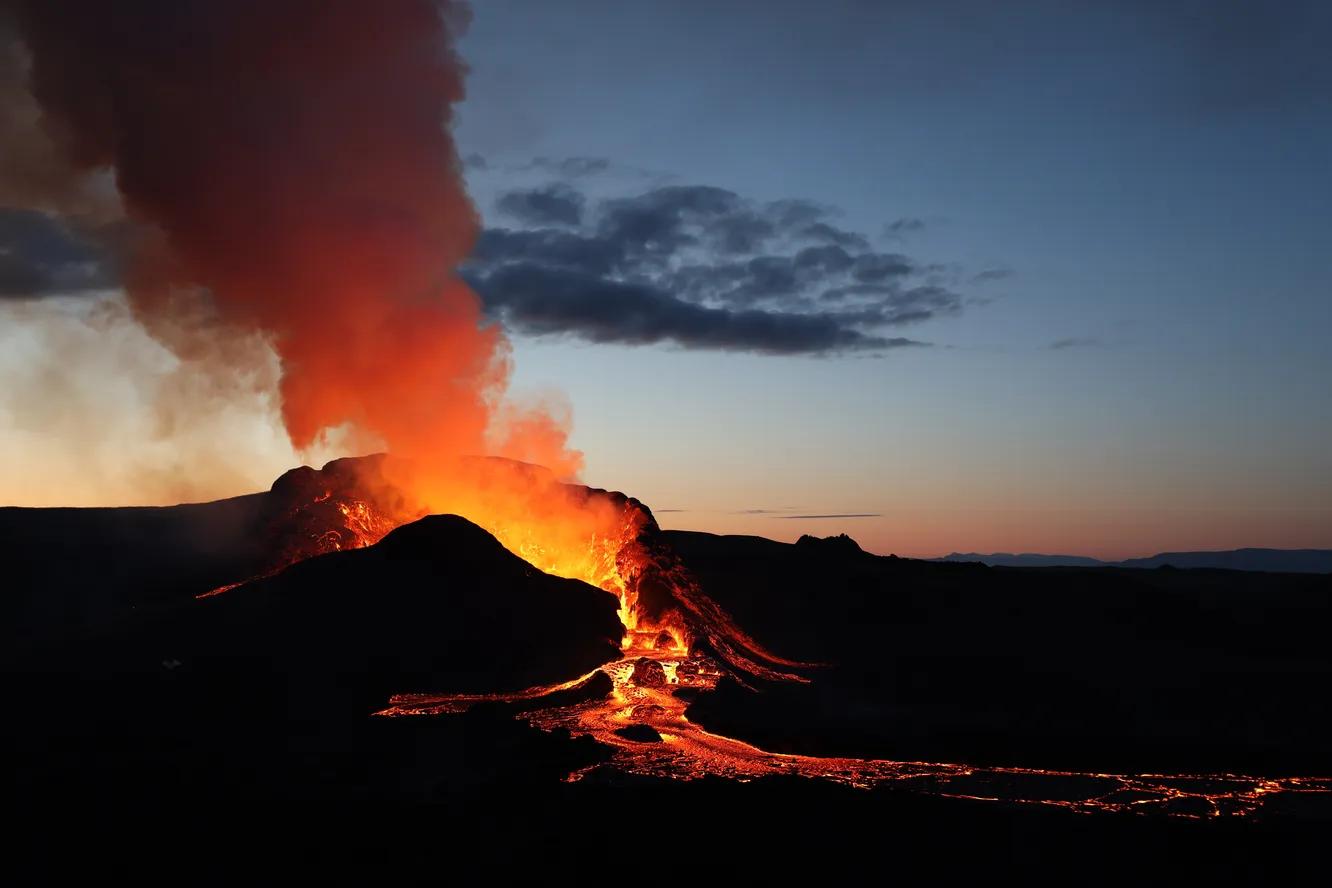A powerful volcanic eruption began on the Reykjanes Peninsula, located in the south of Iceland. According to authorities, a magnitude 4.2 earthquake preceded the eruption, and then a dangerous volcano came to life in the area of the city of Grindavik.
This is not the first eruption in the south of Iceland. The country is famous for its volcanic activity, but it is in the southern part of the island that there has recently been an increased danger due to volcanic emissions. Thus, on November 10, 2023, residents of the city of Grindavik were evacuated due to the danger of lava that could have accumulated under the city due to recent earthquakes. A little later, the country’s authorities adopted a bill to construct special barriers that should protect city residents from lava flows.
On November 23, the level of danger from the lava flow decreased and residents began to return to their homes, however, judging by the news, a new powerful eruption could lead to the repeated evacuation of the entire population of the small town (the population of Grindavik is about 3 thousand people).

The Fagradalsfjall volcano, the eruption of which the inhabitants of Iceland are currently experiencing, is located only 7 kilometers from the city of Grindavik, 30 kilometers from the city of Reykjavik. This is a large volcano that was considered dormant for 6 thousand years, but in March 2021 it suddenly woke up after a series of 40 thousand small earthquakes.
Now the volcano has become abnormally active and erupts regularly. Over three years, the inhabitants of Iceland experienced at least three major eruptions of Fagradalsfjall: in September 2021, in August 2022, and in July 2023. The current eruption was the fourth in a row.
Volcanic activity causes serious economic losses. As a rule, an earthquake precedes a volcanic eruption. The authorities estimate the possible damage from them at $70 million in 2023 alone. And the construction of means to contain lava will cost the country’s budget an even larger amount. And even though it will be partially covered by the taxes of Icelandic residents, the economic damage caused by volcanoes is significantly affecting the economy of the small island state.

